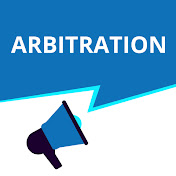Dallas Court of Appeals, No. 05-22-00781-CV (August 22, 2023)
Justices Carlyle (Opinion, linked here), Goldstein, and Kennedy
Topletz owns roughly 225 rental houses. The City of Dallas sued Topletz for various code violations. Several Topletz tenants intervened in 2016, asserting claims individually and on behalf of a class, alleging, among other things, that Topletz’s standard lease omitted certain language about tenant remedies required by Texas Property Code § 92.056(g) and improperly shifted certain repair duties from Topletz to the tenants in violation of § 92.006 of the Property Code. In a lengthy order, the trial court certified a class, and Topletz brought an interlocutory appeal.
The Court of Appeals affirmed in part and reversed in part. Citing the Supreme Court of Texas’s recent decision in American Campus Communities, Inc. v. Berry, 667 S.W.3d 227 (Tex. 2023), the Court of Appeals held that the class could not proceed on its claims for the missing lease language under § 92.056(g) because mere failure to include the language is not actionable. But the court affirmed part of the order deciding the class could proceed on its § 92.006 claims relating to waiver of the landlord’s repair duties.
Topletz also argued that class certification was not proper because the class included members whose claims were barred by limitations. The class definition included all who signed the standard lease from 2008 to present, and Topletz claimed the four-year limitations period barred all claims that had accrued more than four years before the named plaintiffs intervened in 2016. The court disagreed, explaining that a trial court need not resolve the merits of a defense before certifying a class. Rather, a certification order must only explain how a defense will be tried. The trial court’s certification order addressed how it intended to resolve limitations after certification, and Topletz did not identify any specific defects in that part of the trial court’s certification order. Therefore, the Court affirmed certification with respect to the § 92.006 claims about waiver of repair duties.























